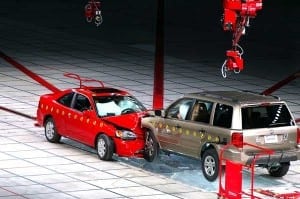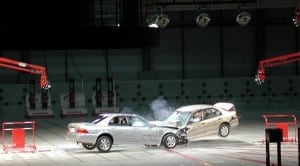Honda commissioned a third-party audit of its reporting under the TREAD Act (Transportation Recall Enhancement, Accountability and Documentation) which identified that the automaker had under-reported 1,729 instances of injury or death to the National Highway Traffic Safety Administration (NHTSA) over the past decade. Most of these were due to errors in data entry, computer coding, or human communication.
Honda requested a meeting with NHTSA on October 17 of this year to brief them on the findings of the audit. Then on November 3, the NHTSA requested information related to Honda’s Early Warning Reporting (EWR). Honda complied on November 24 and announced such publicly shortly thereafter.
 Honda first recognized it had issues with its file management system and its verbal date code in 2011 and believed it may have affected the accuracy of EWR submission. A failure to follow-up resulted in the NHTSA issuing a warning to Honda on the failures in January of 2012. Honda looked into the issue, but again did not continue with it. Then an internal audit at Honda prompted them to re-examine the issue, which lead to a full third-party audit in September and the assigning of a full-time Quality Czar a month later.
Honda first recognized it had issues with its file management system and its verbal date code in 2011 and believed it may have affected the accuracy of EWR submission. A failure to follow-up resulted in the NHTSA issuing a warning to Honda on the failures in January of 2012. Honda looked into the issue, but again did not continue with it. Then an internal audit at Honda prompted them to re-examine the issue, which lead to a full third-party audit in September and the assigning of a full-time Quality Czar a month later.
That third-party audit resulted in Honda finding that 1,729 written claims or notices concerning injuries or deaths from July 1, 2003 to June 30, 2014 were never filed as EWRs. The review found that these were inadvertent data entry and computer programming errors as well as the result of a delay between the time awareness of a possible discrepancy was found and the full investigation was had. Some EWR filings were “lost” in Honda’s system because of those delays in internal audit.
One of the issues was a simple matter of not having a “date claim received” entry on an injury or death claim report. Leaving this out caused the system to ignore the filing as the program that scours those files to make EWR reports would skip those as non-reportable (many reports are considered unsubstantiated and so are not forwarded to the NHTSA).
Further, Honda’s EWR system was not in compliance with the NHTSA component codes requirements, resulting in many of the components found to be defective in a claim being mis-filed with the NHTSA’s computers despite having been properly identified at Honda. This was due in part to Honda’s not having a well-built cross-reference system for converting Honda’s internal component codes to the government’s standardized codes for reporting.
Finally, Honda used an overly narrow interpretation of what constituted a “written notice” under the TREAD Act. Using this narrow interpretation, Honda did not consider third-party documentation that the company obtained through its associates or consultants as reportable. This information might have been obtained from private investigators, police reports, etc. but were not labeled as “notice received” and thus no EWR was created.
Honda says that to ensure such errors do not happen again, they have begun to take a number of steps that address the issues raised in the third-party audit. These include:
* Honda has already corrected the computer programming issue and mapped the complete universe of Honda’s codes to corresponding NHTSA component codes.
* Honda will voluntarily include both written and oral claims of injuries or death in all future Early Warning Reports.
* Honda will implement full training regarding the data entry process, including refresher training with detailed written guidelines.
* Honda is in the process of enhancing its oversight of the Early Warning reporting process.
* Honda will make organizational and staffing level changes in the functional areas responsible for its Early Warning reporting.
* Honda will reprogram warranty and property claims to the EWR reporting system so that all warranty claims are included, and property damage reports will be included whether they are paid or denied.
 One of the fatalities not reported to the NHTSA by Honda was one of 8 claims involving defective Takata airbags in total found in the audit. In all cases of a fatality, other proper NHTSA filings were made with the exception of EWRs, showing that Honda’s system, while dysfunctional, was not under-reporting when reports were made outside of it. All fatalities must be reported to the NHTSA in separate filings and are usually done “by hand” internally and Honda was in full compliance in that regard, with employees assigned to and specifically handling reports of fatal injuries correctly.
One of the fatalities not reported to the NHTSA by Honda was one of 8 claims involving defective Takata airbags in total found in the audit. In all cases of a fatality, other proper NHTSA filings were made with the exception of EWRs, showing that Honda’s system, while dysfunctional, was not under-reporting when reports were made outside of it. All fatalities must be reported to the NHTSA in separate filings and are usually done “by hand” internally and Honda was in full compliance in that regard, with employees assigned to and specifically handling reports of fatal injuries correctly.
For this reason, it’s unlikely that the NHTSA will take harsh action against Honda for their failures to submit EWRs.






